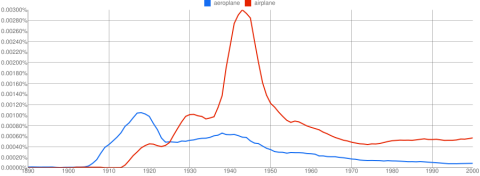The other day I was wondering why Winston Churchill wanted the soon-to-be-blitzed British to bear themselves like the ‘brave men of Barcelona’, and not the equally brave men1 of Madrid or Chungking, which had also undergone heavy bombardments for long periods of time. I must admit I didn’t actually think it was ever likely that a Chinese city would have come to mind, though, because of its remoteness and un-Europeanness. Well, I was wrong about that. The Japanese bombing of several Chinese cities in 1937 and 1938 caused great concern in Britain, on a level equalling or perhaps even exceeding that caused by the bombing of Guernica earlier in 1937. See, for example, this advertisement placed in the Spectator of 10 June 1938 (p. 1079) by the China Campaign Committee, outlining a concerted series of protests against the bombardment of Canton (Guangzhou), in which dozens of people were being killed each day:

The China Campaign Committee, by the way, had impeccable left-wing credentials, with people like Harold Laski, Victor Gollancz, Ben Tillett, Richard Acland and Philip Noel-Baker among its numbers or speaking on its behalf (along with the inevitable clergymen and humanitarians), so it seems that China’s plight was taken to the left’s heart, like Spain. I haven’t found anything like this concerning protests at the bombing of Guernica or Barcelona (which doesn’t mean there weren’t any, maybe I need to look harder). It may be that with Spain being so much closer, those who wanted to help could do so more directly (join the International Brigades, provide shelter for Basque children), though having said that, Canton was very close to Hong Kong, about 130 km away, so it was relatively easy for British journalists to get to and may have seemed more familiar than most places in China.
But I think there’s another reason too. The Times reported on the Trafalgar Square demonstration, and on the speech given to the 2000-strong crowd by J. B. S. Haldane, a well-known biologist and a Marxist, who had strongly criticised the government’s ARP programme:
Dealing with the bombing, PROFESSOR HALDANE said to the crowd that half a dozen aeroplanes could pulp them in a few minutes.
“You can take it from me,” he added, “the air raids in Canton and in Spain are only dress rehearsals for air raids we may expect on London. Germany is not using her main air force in Spain. Japan is not using hers against China. Japan is learning from every air raid on Canton the most efficient use that can be made of bombs, for dropping on British territory and British ships. Then she compares this information with the information her German friends have gathered in Spain.”2
These are the sort of sentiments I expected to find with Guernica, but didn’t. It appears that there was a cumulative effect from the repeated incidents where civilians were bombed which changed the nature of public concern in Britain: from the essentially humanitarian concern for the Basque victims of the Condor Legion in early 1937, to the more selfish fear, in mid-1938, that British civilians would be next. Guernica, April 1937; Shanghai and Nanking, September 1937; Barcelona, March 1938; Canton, May and June 1938; Barcelona again, June 1938. It would have seemed like bombing civilians was becoming a normal part of warfare. Such an impression would have reinforced by the Japanese ambassador’s helpful explanation that Canton had been bombed, in part, ‘to demoralize the Chinese people’3 — whereas by contrast the Germans had denied having anything to do with the horror at Guernica the previous year. So not only was the bombardment of cities becoming more common, it was apparently becoming more acceptable. What was going to happen in the next war?
Canton was bombed again in August 1938, along with Hankow (Hankou). The following month, the roads out of London were clogged as thousands of people fled the city in the expectation of a knock-out blow, while anti-aircraft guns swept the skies, preparing to engage hordes of German bombers. Neville Chamberlain said ‘How horrible, fantastic, incredible it is that we should be digging trenches and trying on gas-masks here because of a quarrel in a far away country between people of whom we know nothing’. He was referring to Czechoslovakia, of course, but perhaps China helps explain the Munich crisis too?
![]() This work is licensed under a Creative Commons Attribution-NonCommercial-NoDerivatives 4.0 International License.
Permissions beyond the scope of this license may be available at http://airminded.org/copyright/.
This work is licensed under a Creative Commons Attribution-NonCommercial-NoDerivatives 4.0 International License.
Permissions beyond the scope of this license may be available at http://airminded.org/copyright/.





Another reason why a Chinese city might not have been a useful allusion for WSC was the way in which the Sino-Japanese War was framed in the West. In Capra’s Why We Fight, for instance, the Chinese are depicted as helpless, passive victims – objects of pity, but not emulation. The Spanish Republicans might not have been Churchill’s ideological cup of tea, but there was less question about their willingness to resist.
That’s a fair point, but wasn’t there also a stereotype of the Chinese peasant as capable of patiently enduring crushing burdens? And by the summer of 1940 China had been fighting Japan for just under three years, longer than the entire Spanish Civil War lasted. Seems like a good model for the Blitz spirit!
Well, it’s the representation of the Sino-Japanese War that’s the issue here, not the reality. Obviously the Chinese were incredibly resilient in the face of unimaginable horrors. But one does get the sense that they were seen in the West as childlike innocents. Capra has a piece about the Chinese as peculiarly unwarlike, only interested in gunpowder for its pyrotechnic qualities – cue a scene of wonderstruck peasants watching a firework display. Historical nonsense, of course. But influential nonsense.
Yes, but my point is that there were alternative representations of the Chinese for Churchill to draw upon, if he so chose, which would have been positive role models for civilians under bombardment (doesn’t mean they would have to emulate the Chinese in every respect!). That he didn’t may well have been because he didn’t view them so positively, or because he thought his audience didn’t, or it might just have been that Barcelona had been bombed by Italy, which had just entered the war whereas Japan was still neutral.
Pingback: Frog in a Well - The Korea History Group Blog
I think you hit the nail on the head with JBS Haldane. If you search the Times online edition for references to “Barcelona” and “The Lessons of Barcelona” in December 1938, you´ll see that the city was the focus of the “deep shelter” lobby´s campaign — led by Haldane — to make the govt adopt similar deep shelter ARP measures as they had in Spain. As Barcelona was a more accesible city than Madrid, Labour party deleagations repeatedly visited the city´s shelter projects, gathering information to pressure the anti-Anderson shelter campaign at home.
This is my theory: Churchill knew the Barcelona “model” appealed to the left, and in this crucial speech was making every possible gesture towards national unity.
Thanks for your comment Jul — that’s an interesting idea. I can certainly buy the idea that Churchill mentioned Barcelona to appeal to the left, but I’m not sure that it’s a reference to Barcelona’s deep shelters — because Churchill would then be implying that he was favouring deep shelters, wouldn’t he? And I don’t think he ever did, and wouldn’t want to make implicit promises to that end. In my opinion it’s more likely that it’s just because the left identified with the plight of Barcelona in general (because of their links with the city during the civil war, as you say), and because Barcelona could plausibly be presented as a city which had resisted fascist attacks for over two years, as London might soon have to do …
Pingback: Airminded · Debating bombing and foreign intervention — III
Would anyone have any info on Japan’s bombing of Guangzhou’s Chang Ti Street, now Chang Di Da Ma Lu, in the 1930’s and 1940’s? Thank you.
Chang Di inquirer’s address is ngaihing@live.com. Thank you.
One reason behind Churchill’s failure to cite the bombing of Canton in his exhortations to the British may have been that he more or less dismissed the Japanese threat to British interests. Even well into 1941, at least according to Liddell Hart, he couldn’t be persuaded to take any precautions against their launching an attack on the Empire.
I know the two issues have no direct link, and there was therefore not necessarily any reason for him not to use the Chinese example, but psychologically something may have held him back.
My thoughts about Churchill’s sub-conscious reasons are much as follows:
Why didn’t the Japanese pose a threat? Because the British Empire was so grand that it would be impervious to the slings and arrows of an oriental people. Its sheer prestige would dazzle them. Japanese technology was second rate at best (a view held by many westerners at the time) and while it might be suitable for slaughtering the Chinese it would hardly suffice for fighting the British. Ultimately, offering up any comparison between the British and the Chinese – a nation of coolies and peasants – would be unworthy and even humiliating.
W.:
Sorry, I can’t help you — so little has been written about the Japanese bombing of China that you’re unlikely to find anything about what happened in such a small area. I did recently read Jeremy Black, Avoiding Armageddon: From the Great War to the Fall of France, 1918-40 (London: Bloomsbury, 2012), which has some information. There is also a US Army monograph written using Japanese sources, Air Operations in the China Area, July 1937-August 1945 (1956). It can be downloaded for free from here. But as I say it’s unlikely to be much use to you, it doesn’t have that level of detail.
Neil:
Sure, racism and racial stereotypes may well have played a part. But there was a lot of casual racism about Spaniards too, and so if that was the reason I’m a bit surprised that Churchill would go there in the first place, instead of seeking some other, ‘whiter’ example to use for inspiration. No doubt the Chinese were seen as ‘lesser’ than the Spanish, so maybe there was a racial line which Churchill consciously or unconsciously declined to cross in talking about Barcelona and not Canton. Thinking on it again I another part of the answer might lie in the way he casually throws Barcelona in, without explaining it: he must have assumed that his audience would understand what he was talking about. For Barcelona, which had been in the news for several years (not only for bombing but as the international face of the Republic etc) until quite recently, he was probably safe in doing so. Canton (or other Chinese cities under aerial bombardment) really only became a cause célèbre in the summer of 1938 and then died as an issue. So rhetorically speaking it would be less useful to invoke China because he would have to explain what he meant.
Pingback: Asian History Carnival #15 | Frog in a Well